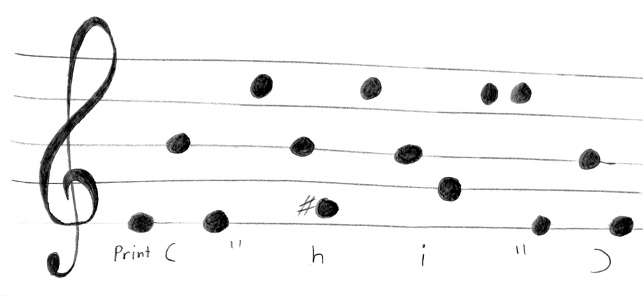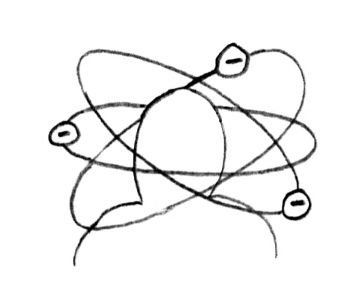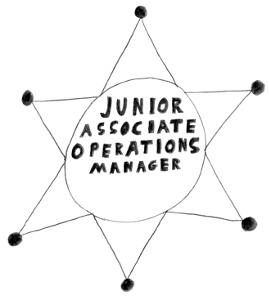Cracticus tibicen



I've been thinking recently about some ideas for a musical programming language. I don't mean a programming language for writing music, there are lots of those, but more like a programming language written in music. We seem to be surprisingly conservative at times when coming up with new kinds of programming, given the relatively low bar for universal computation. Mostly we end up revisiting the same old Algol or Lisp-derived designs.
So I think something that could be called musical programming would start with structures found in music, and the aesthetics of music, and figure out a way to use those to do computation. We mostly hear intervals between notes rather than their absolute frequencies, so it would make sense for the syntax in the language to be specified by intervals. It's also common to have a hierarchy that builds through melody or chord progressions that eventually resolves via cadence, which would be a good way to represent nested structure (like parentheses in other languages).
In music, there is a lot of room for interpretation; even when a classical musician adheres to the intent of the original composer, they will still add their own emotion and intonation. Similarly, then, musical programming would have a lot of ways to express the same thing, allowing for a large range of artistic expression while still being recognisable as the original piece. Maybe this would even go so far as ignoring the key and the rhythm entirely, as long as the relative intervals and key changes stay the same.
Most importantly, musical programming would need to be designed to accept music as input and produce it as output. Much as you use language to speak about language, or write programs to interpret programs, a musical programming language should be able to reason about itself. It should be possible to write a musical program to transform other music, or even other musical programs. And, of course, you could create and execute musical programs entirely using musical instruments.
Taken together, this should give a skilled musical programmer the ability to live-compose music that composes other music, which I think would be a substantial triumph of the idea.

A year ago, I wrote Analgesia, where I observed that entertainment can become pathological when it's used as a kind of painkiller to distract you from something making you feel uncomfortable or unhappy. I've been thinking recently about a more general problem of misdirected negativity.
It seems like the general intuition is that negative feelings, negative thoughts and so on are bad and unhelpful. I've no doubt that sometimes they are; If you're bombarded with negative thoughts about everyday things that, on reflection, don't indicate any problem, then that's definitely not helping you in any way.
However, it's going too far to say that all negativity is bad. Much like chronic pain is terrible and pathological, so is constant negativity. But pain when you put your hand in a fire tells you to remove your hand, and that's obviously useful. Similarly, it can be useful to feel bad, even to feel absolutely terrible. If those negative feelings stem from a situation you can change, then ignoring them is every bit as silly as leaving your hand in the fire to burn.
So this is the problem with a worldview where any negativity is bad. You get these negative feelings, but instead of letting them motivate a change in your actions, you deal with the feelings themselves to try to avoid feeling bad. I think of this as misdirected negativity, because instead of letting that negativity flow through to your behaviour, you're diverting it to somewhere else.
Entertainment is one way to misdirect negativity, but there are lots of others too. It doesn't feel good to feel bad, so it's understandable that our instinct is to fight against it. However, I think it can make more sense to embrace negativity, to allow yourself to feel sad, bored, frustrated, lonely, or afraid. While you're there, ask: what is this negative feeling for? What is it trying to get me to do?
Maybe the answer is nothing, and it's a pointless negative mood that it makes sense to ignore. On the other hand, maybe it reflects an important change worth making, and the right answer is to pass through that negativity to whatever is on the other side, rather than shrink away from it and end up back where you were before.

I've written before that I see the brain mostly as an association machine. But there's a problem with that: associations are a runaway self-reinforcing mechanism. A dog jumps on you as a kid and you get scared, building a scary association. Then when you see another dog, you get scared again before you even get near it, which strengthens the association even though nothing happened. This continues until somehow you end up with a runaway fear of dogs from just one incident.
This problem can be particularly pronounced when motivating yourself to work on something. You think about doing it, but you don't do it – not even necessarily for a good reason, maybe you just got distracted or you were too tired that day or something. Regardless, an association forms between thinking about the work and not doing the work. Every time you think about doing the work but don't do it, it's more difficult than the time before. This aversion seems like it's coming from nowhere because, in a sense, it is; it's just a feedback loop amplifying meaningless noise.
Despite this, we manage to get things done and break these cycles thanks to our executive function. We can deliberately override what our association machine would do by exercising cognitive control over our behaviour. So we compel ourselves to work on a project even though we don't feel like it, because we know that we will enjoy it once we break out of this pattern of never starting. We compel ourselves to pat the dog even though we're scared of it, because we logically know the dog is friendly and our fear is unfounded.
But it is also possible to abuse executive function. You can use the same mechanism to compel yourself to do something that will not build a good association. Instead of using cognitive control to work on a fun project you've been putting off, you could use it to compel yourself to do work that you don't actually enjoy. Either way works the same at the time; you're just overriding those bad associations. The difference comes later; doing the thing you enjoy builds a good association, doing the thing you don't enjoy reinforces bad ones.
Over time, abusing your executive function like this leads to a stronger and stronger negative association. After all, you can choose to keep slapping yourself in the face, but you're not going to start thinking it's fun. Repeated exposure to these negative associations can lead to learned helplessness and depression. Worse still, there's evidence to suggest that your cognitive control has a limited capacity that depletes as you use it. So you could end up in a situation where you are depressed but also lacking the cognitive resources to do anything about it. I believe it's these two things together that we refer to as burnout.
For this reason, I think it's important to be selective with your use of executive function. It's not something that should be needed constantly, or used to prop up a negative situation through sheer force of will. Instead, your association machine should be allowed to do its job, which it mostly does very well. When it gets off track, your executive function can intervene, make some adjustments, and then step away again.

How do you get a title? I mean, if you go from Junior Associate Operations Manager to Senior Associate Operations Manager, what's the mechanism that leads to that change? In the business world, titles are given as recognition, sort of like a knighthood or a trophy. Someone in a position of power (perhaps the Vice President of Operations Management) comes to you and says, "good work this quarter, Bob, I'm making you SAOM". Or you ask the VP nicely, push for it in your initial hiring negotiations, etc. Regardless, these titles are bestowed: someone (or a group of someones) gives them to you based on whether they think you deserve them.
This causes a number of issues. Firstly, the classic Peter principle: you get promoted as long as you're doing a good job and you stop being promoted when you're no longer doing a good job, so eventually everyone gets promoted into a position they can't do. The core problem here is that bestowed titles are optimistic; you aren't promoted because of your ability at the job you're being promoted into, you are promoted in the hope that your performance in your current job will imply performance in the new job. Problem is, that's not always true, so speculative promotions can backfire spectacularly.
Another problem is that bestowed titles make it hard to know what that title means. If someone is a senior, what does that imply about their abilities? Maybe they are much more qualified than a junior. Or maybe they just fooled their manager, or the manager is biased. Maybe the company just needed more seniors. Maybe they'd just been around so long that it became politically inconvenient for them to stay junior. To understand the meaning of a bestowed title, you need to understand the people bestowing it and what their motivations are. And if you don't know what someone else's title means, do you know what your own means? A side-effect of bestowed titles is impostor syndrome, because you can't be sure that you're actually qualified for your own job.
On the other hand, there are certain titles that are earned instead of bestowed. Academic qualifications, professional accreditations like in law or medicine, and even the certification process for using certain equipment. Earned titles are handed out on the basis of demonstrated, tested ability with, in theory, very little in the way of politics or personal judgement. By their nature, these can't be handed out speculatively or optimistically; you weren't given this title because someone wanted to take a chance on you, you earned it by showing you can do what the title requires. Because of this, earned titles can be trusted in a way that bestowed titles can't. And rightly so; you wouldn't want to be operated on by Doctor Let's-Try-You-In-Surgery-And-See-How-You-Go.
It seems to me that the business world is a bit behind in this sense. If promotions were earned based on a well-known set of testable criteria, more like certifications than honorary titles, it would be much easier to have confidence in what they mean, both for other people's titles and your own. Maybe that would even lead to a system where instead of one title, you earn many different titles depending on your skillset. So no more Senior Engineer, more like Database 3, Programming 3, Ops 4, Tech Lead 2, Design 2, Management 1. You'd have a clear mapping between titles and pay, you'd know exactly what your colleagues can do, and it would always be clear which skills to work on if you want to progress.